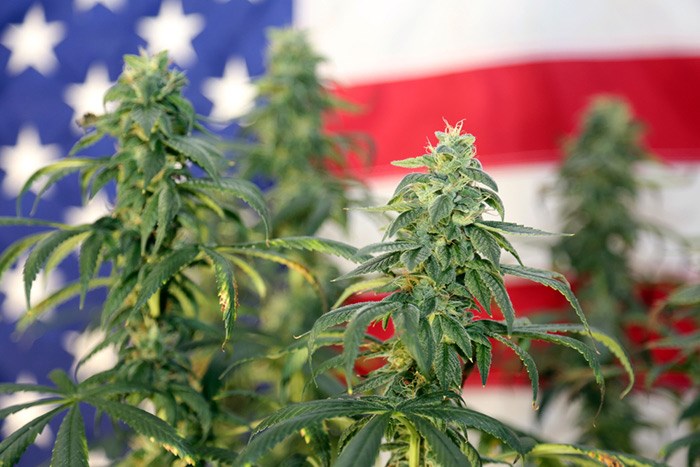 Photo Shutterstock
Photo Shutterstock
In the past few weeks since the announcement of the legalization of recreational cannabis, a significant issue has been revealed surrounding border travel. Canadians who wish to travel to the United States and who are involved in the legal, recreational cannabis industry face lifetime border-crossing bans, if they are identified as cannabis users, sellers, or investors.
Take the case of Sam Znaimer, an investor in cannabis startup companies. On a recent trip to the United States, . He was also given a lifetime ban on entering the United States. All due to his ties to the cannabis industry.
Even connections purely to drug use can cause problems crossing the border. Derek Kowalenko has been banned from entering the United States for life, . This is frightening news given Canada’s extremely strict marijuana-driving laws that are due to be implemented at the same time as cannabis legalization.
A 24 Hour Prohibition is a provincial penalty. British Columbia has introduced drug-impaired driving laws that rely on flawed science such as saliva testing. And the 90-day prohibition scheme for impaired driving is no better, with drug impaired driving convictions to be registered on a driver’s record on the basis of a highly subjective drug recognition evaluation test.
As a private citizen, there is little a person can do to protect themselves from this scrutiny at the border. It is an offence to make a false statement at the border when seeking entry into he United States. And despite the fact that several border states, including Washington and Colorado, have legalized recreational marijuana, cannabis remains illegal federally in the U.S. It is considered as serious as any hard drug.
So lying is not an option.
In any event, it is likely that the U.S. border officials will have access to a significant amount of cannabis-related data. From to registries of licensees for retail sales in British Columbia, the data collected by government on cannabis use, sale, and distribution is going to be significant.
Despite the fact that a recent Supreme Court of Canada decision tightened the stranglehold on governments sharing , privacy rights are considered to be much more relaxed at the border. You have almost no privacy at the border, meaning that these government-run registries of cannabis-connecting content will be used to identify you as persona non grata in the United States.
Lie and you’re out. Tell the truth and you’re out. Withdraw your application for entry and potentially raise a red flag for future border crossing.
The only viable option appears to be to apply for a U.S. immigration waiver. This is a costly, time-consuming process with little guarantee of success. And it requires retaining the services of a U.S. immigration lawyer, which means legal fees in American dollars, and reaching out to a person you’ve never met and never likely will meet for assistance.
For many Canadians, cancelling the family trip to Disneyland may be a more attractive option.
All this is made much worse by the fact that the Federal government has known since before passing the legalization bill that this would be an issue. And despite the fact that our Federal government has been well aware that cannabis legalization would spell the end of cross-border travel for many citizens, they have been perfectly content to let the status quo lie.
The government has, in this regard, failed its citizens.
Cannabis legalization was an important and necessary step for the government to take. It will save millions in unnecessary prosecutions, avoid criminal records for many, and free up a significant burden on our court system. But much more thought ought to have been put into how legalization impacted our interest in cross-border travel.
And while Canadians do not have a right to enter the United States, for many it is a huge part of daily life. Numerous individuals in the Lower Mainland freely cross the border to purchase cheaper gas or groceries, or to pick up mail at U.S. mailboxes for packages and parcels that do not ship to Canada.
The Federal government acts as though it did not know this. It does. It has as much access to the data on frequency of border crossing as the United States does.
There were steps the Federal government could have taken. Rather than engaging in a trade war with the United States, straining relations and making the future of cross-border travel more difficult, the Canadian government could have been communicating with U.S. officials to develop a memorandum of understanding about cannabis legalization and our border. The Canadian government could have drafted a treaty between the United States and itself, protecting the ability of citizens who are participating in lawful, peaceful activity in Canada to cross into the United States without concern.
And yes, they could easily agree that Canadians would be advised not to bring drugs in the United States.
Something reasonable could have been developed.
Instead, the best the Canadian government can do is , stating, essentially, that drugs are bad and in the U.S. they are worse. This information is neither helpful nor comforting. And the Canadian government appears to have taken little to no action to make the situation better.
By leaving the issue of border travel completely up in the air, the Federal government has failed its citizens. It has thrown them to the wolves, wearing US Customs and Immigration uniforms.


